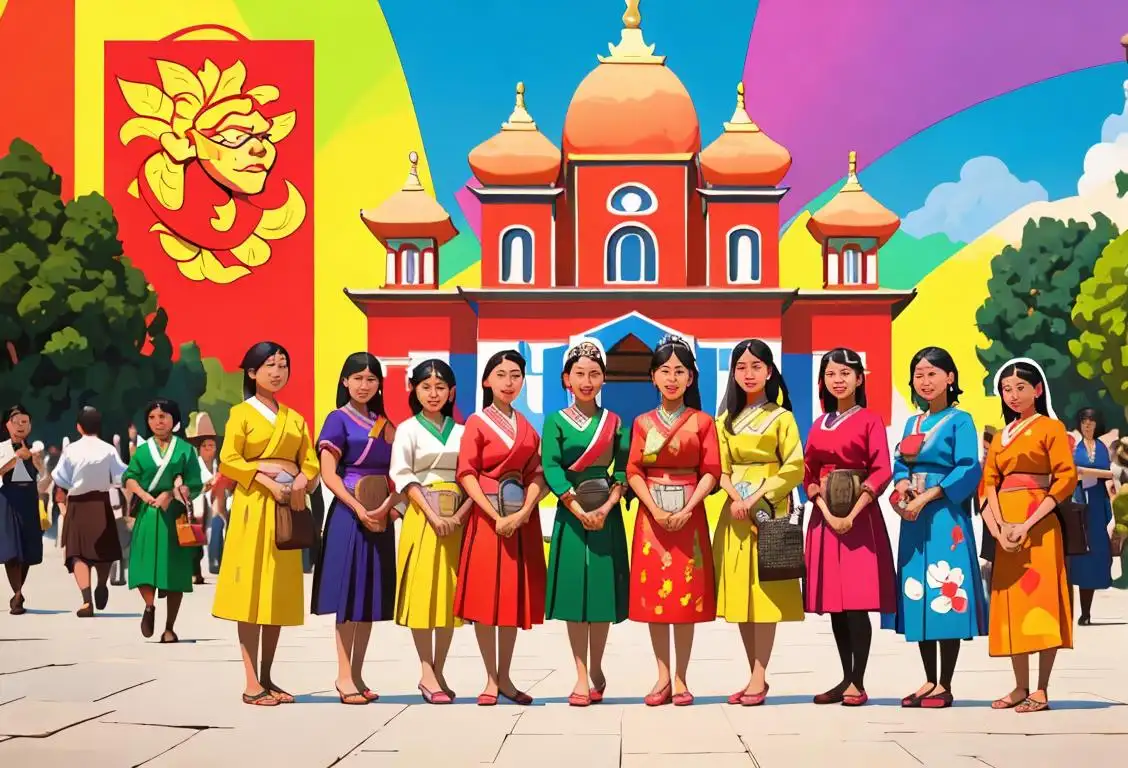National Culture Day

Hey there! Welcome to the wonderful world of National Culture Day. It's a day that celebrates the rich tapestry of cultures that make our world so vibrant and diverse. So, grab your passport, put on your cultural hat, and let's dive into the fascinating history and traditions of this special day!
When is Culture Day?
It's national culture day on the 18th October.
A Journey into National Culture Day
National Culture Day is a fantastic opportunity to embrace and appreciate the countless cultures that coexist around the globe. It’s a day to honor the customs, traditions, languages, music, art, and everything else that contributes to the unique identity of each nation and people.
On this day, people come together to celebrate the beauty of diversity and learn from one another. It’s a chance to break down barriers and foster understanding, promoting peace and harmony in our increasingly interconnected world.
The Origins of National Culture Day
The exact origins of National Culture Day are a bit mysterious, as its celebration differs from country to country. However, it's safe to say that this day took shape to acknowledge the importance of cultural heritage in human society. From ancient civilizations to modern nations, culture has always played a vital role in shaping identities and fostering a sense of belonging.
Whether it's through dance, cuisine, traditional clothing, or folklore, every culture adds a unique thread to the tapestry of humanity. National Culture Day serves as a reminder to cherish and value that tapestry, appreciating the contributions of all cultures and embracing our shared humanity.
Celebrating National Culture Day
The ways in which National Culture Day is celebrated vary greatly depending on the country and community. Some nations organize grand festivals, showcasing a medley of cultural performances, art exhibitions, and culinary delights. Others may offer workshops, language courses, or guided tours to immerse people in a different culture for a day.
It's also a popular day for people to try out new recipes, experiment with traditional clothing styles, or learn a few phrases in another language. From Bollywood dance parties to international film screenings, the possibilities are endless when it comes to celebrating the rich diversity of cultures.
Did You Know?
In honor of National Culture Day, did you know that there is a village in India called Mattur where Sanskrit is spoken fluently? The residents have made a collective effort to preserve and promote the ancient language, using it in their daily conversations and even teaching it to younger generations. It's a fascinating testament to the power of culture and language to connect communities.
History behind the term 'Culture'
500 BCE
Emergence of the term 'culture'
The term 'culture' finds its roots in the Latin word 'cultura', which originally meant 'tilling the soil' or 'cultivation of land'. This agricultural connotation evolved to encompass the nurturing and development of human society and its various practices, beliefs, and customs.
18th century
Expansion of the term's meaning
During the 18th century, the term 'culture' underwent a significant expansion in its meaning, moving beyond agriculture and encompassing intellectual and artistic pursuits. It came to represent the broad range of human activities, customs, and achievements, including arts, literature, science, philosophy, education, and social habits.
19th century
Culture as a refined way of life
In the 19th century, the concept of 'culture' shifted towards a more refined understanding. It came to be associated with the pursuits of the upper classes and represented a refined way of life characterized by education, etiquette, manners, and sophistication. This perception was further reinforced by cultural movements such as the Romantic period and the Enlightenment.
20th century
Cultural anthropology and cultural relativism
In the 20th century, cultural anthropology emerged as a discipline focused on studying various cultures and their similarities and differences. This led to the development of the concept of cultural relativism, emphasizing the importance of understanding cultures within their own contexts and valuing diversity. The term 'culture' gained a deeper anthropological meaning as it became intertwined with the study of societies and human behavior.
21st century
Cultural globalization and digital culture
In the 21st century, the concept of 'culture' has been further expanded due to cultural globalization and the rise of digital culture. Globalization has enabled the sharing and integration of cultural practices and values from different parts of the world, leading to the emergence of multicultural societies. Additionally, the advent of the internet and digital technologies has given rise to new forms of cultural expression and consumption, shaping contemporary understandings of 'culture'.
Did you know?
In honor of National Culture Day, did you know that there is a village in India called Mattur where Sanskrit is spoken fluently?Tagged
food fun loved onesFirst identified
22nd May 2015Most mentioned on
18th October 2020Total mentions
290Other days
Biscuit Day
Cheese Lovers Day
Cheese Pizza Day
Agriculture Day
Bacon Day
Medal Of Honor Day
Pumpkin Day
Foundation Day
Guac Day
Drink A Beer Day









